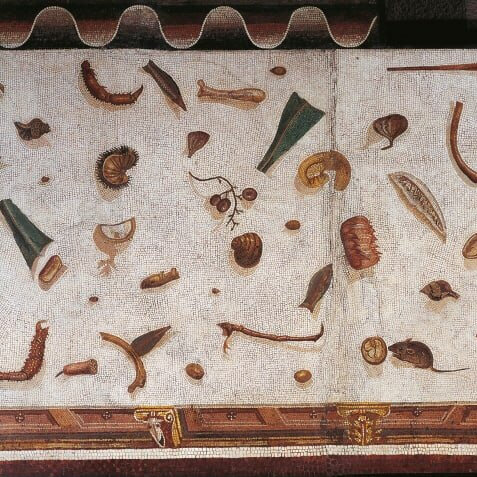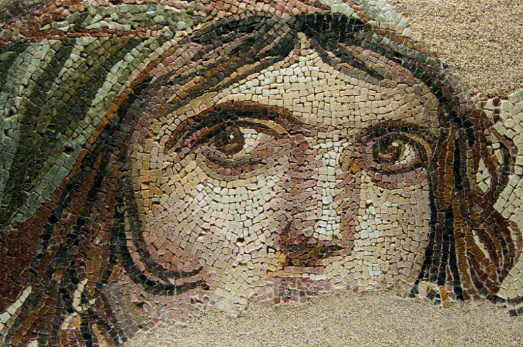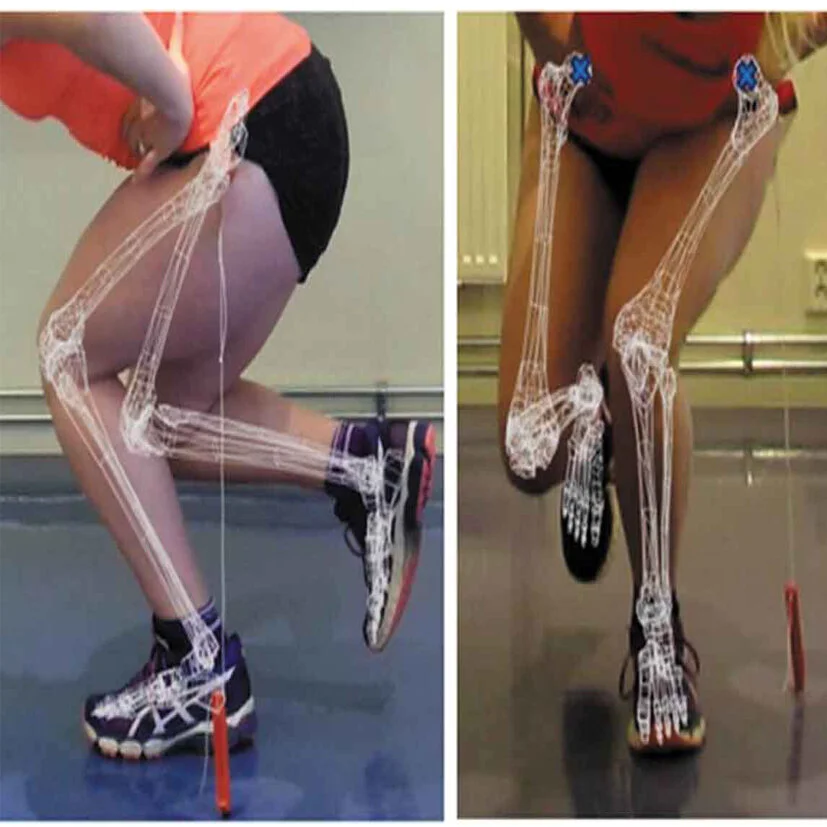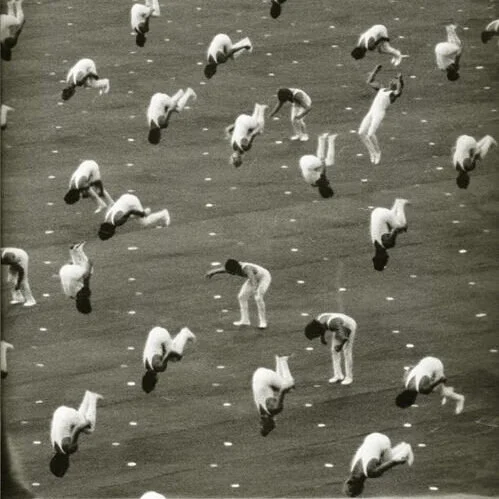Mens sana in corpore sano | A Healthy Mind In A Healthy Body
‘The past is a foreign country; they do things differently there’ wrote L.P. Hartley. When we look back it does seem like we don’t have much in common with our unfamiliar forebears, but dig a little bit deeper and it’s plain to see we share a lot still in common. Ancient Rome has left a long and varied legacy we live with today such as roads, medicine, engineering, philosophy and literature to name a few. Some ideas are timeless, tapping into universal archetypes we can all relate to about the human experience, other ideas are of their time and seem brutal or absurd when measured by today’s standards.
‘Mens sana in corpore sano’ is often translated as ‘a healthy mind in a healthy body’ was coined by the Roman poet Juvenal who was born in 55 AD. This phrase struck me as particularly relevant in our modern sedentary age, where so many of us instinctively believe it is the responsibility of the State or the healthcare system to cure us, our own personal responsibility minimised as much as possible. I would wager that ancient Rome was among the very first civilisations to suffer from over-indulgences with the ruling classes spending their entire lives separated from labour of any kind thanks to slavery.
These people indulged in feasts that were hours long - hosting a banquet and providing lavish food was status symbol and led to many excessive shows of one-upmanship. The seating allowed people to eat lying down and doubled as a place to have a snooze in-between courses. It was also fairly normal to vomit, leaving space for more food and, not to worry, the slaves could clear up the mess. The same with the problem of leftovers; meat and fish bones were thrown on the floor by guests.
Farmers would spend months fattening up dormice, and parrots were killed to make parrot tongue fricassee, these delicacies highlighting the wealth of the host.
Gorging for hours, unsurprisingly, comes at a cost and, with the indolent lives many of these people led, meant these gluttonous indulgences inevitably came consequences. The upper classes have always used food as a way to broadcast their wealth and status, distinguishing themselves from everyone else with their health problems such as gout, chronic nephritis and obesity.
Gout - a type of arthritis that causes inflammation of joints due to excess uric acid - was perhaps the first recognised lifestyle related disease of affluence. Hippocrates himself, often credited as the father of modern medicine, made the connection and referred to it as ‘the unwalkable disease’.
‘Hippocrates also noted the link between the disease and an intemperate lifestyle, referring to gout of the foot as an ‘arthritis of the rich’, as opposed to rheumatism, an arthritis of the poor. Six centuries later, Galen was the first to describe tophi, the crystallized monosodium urate deposits that can follow longstanding hyperuricemia. Galen associated gout with debauchery and intemperance, but also recognized a hereditary trait that had previously been referred to by the Roman senator Seneca.’
Many studies have suggested that the parts of the brain that control thinking and memory are larger in volume in people who exercise than in people who don’t. Movement stimulates the growth of new neurons also increases levels of serotonin, norepinephrine, dopamine and endorphins that support emotional well-being, motivation and response to stress. Neuroscientist Wendy Suzuki explains how movement has a protective effect on the brain, which makes it less susceptible to neurodegenerative diseases and normal cognitive decline, “you are making synaptic connections, and you are making more synapses grow. Movement will help your brain today and protect you against neurological decay in the future.”
When it comes to healthcare we have got our priorities wrong and the best way to keep healthy is to take a preventive approach, avoiding exposure to environmental risks, eating a healthy diet low in ultra-processed food coupled with lots of movement and minimising stress. Everyone gets sick occasionally and some of us may need medical intervention, but by taking a proactive approach we can stack the deck in our favour.
It seems like that Juvenal might have noticed something that a lot of people still seem blind to now - that we cannot separate our mind and body when it comes to health. Can we stay as sharp as a pin mentally if we never go outside, move around and keep our body in good shape? Likewise, if we focus entirely on what we look like, to the detriment of cultivating our mind, are we in balance? Movement is a key factor to maintain both the mind and body in a healthy state.
You should pray for a healthy mind in a healthy body.
Ask for a stout heart that has no fear of death,
And deems length of days the least of Nature's gifts
That can endure any kind of toil,
That knows neither wrath nor desire and thinks
The woes and hard labors of Hercules better than
The loves and banquets and downy cushions of Sardanapalus*
What I commend to you, you can give to yourself;
For assuredly, the only road to a life of peace is virtue.
- Satire X by Juvenal (written in 120 AD)
*Sardanapalus was the last of a line of 30 kings of Assyria, who exceeded all his predecessors in his sybaritic way of life.
REFERENCES
Martínez de Morentin PB, López M. "Mens sana in corpore sano": exercise and hypothalamic ER stress. PLoS Biol. 2010;8(8):e1000464. Published 2010 Aug 24. doi:10.1371/journal.pbio.1000464
Nuki, G., Simkin, P.A. A concise history of gout and hyperuricemia and their treatment. Arthritis Res Ther 8, S1 (2006). https://doi.org/10.1186/ar1906
De la Torre J. Mens sana in corpore sano, or exercise abuse? Clinical considerations. Bull Menninger Clin. 1995 Winter;59(1):15-31. PMID: 7894379.
Louisa Lyon, ‘All disease begins in the gut’: was Hippocrates right?, Brain, Volume 141, Issue 3, March 2018, Page e20, https://doi.org/10.1093/brain/awy017
Schwartz S: Disease of distinction
Häfner M. When body and mind are talking. Interoception moderates embodied cognition. Exp Psychol. 2013;60(4):255-9. doi: 10.1027/1618-3169/a000194. PMID: 23548985.
Wayne PM, Walsh JN, Taylor-Piliae RE, et al. Effect of tai chi on cognitive performance in older adults: systematic review and meta-analysis. 2014. In: Database of Abstracts of Reviews of Effects (DARE): Quality-assessed Reviews [Internet]. York (UK): Centre for Reviews and Dissemination (UK); 1995-. Available from: https://www.ncbi.nlm.nih.gov/books/NBK184537/
Anderson E, Shivakumar G. Effects of exercise and physical activity on anxiety. Front Psychiatry. 2013;4:27. Published 2013 Apr 23. doi:10.3389/fpsyt.2013.00027
Exercise and the brain: Here's three ways physical activity changes its very structure
Mela V, Mota BC, Milner M, McGinley A, Mills KHG, Kelly ÁM, Lynch MA. Exercise-induced re-programming of age-related metabolic changes in microglia is accompanied by a reduction in senescent cells. Brain Behav Immun. 2020 Jul;87:413-428. doi: 10.1016/j.bbi.2020.01.012. Epub 2020 Jan 21. PMID: 31978523.
Lumsden J, Miles LK, Macrae CN. Sync or sink? Interpersonal synchrony impacts self-esteem. Front Psychol. 2014;5:1064. Published 2014 Sep 19. doi:10.3389/fpsyg.2014.01064
Kiverstein J, Miller M. The embodied brain: towards a radical embodied cognitive neuroscience. Front Hum Neurosci. 2015;9:237. Published 2015 May 6. doi:10.3389/fnhum.2015.00237
Power JD, Petersen SE. Control-related systems in the human brain. Curr Opin Neurobiol. 2013 Apr;23(2):223-8. doi: 10.1016/j.conb.2012.12.009. Epub 2013 Jan 21. PMID: 23347645; PMCID: PMC3632325.
Wilson AD, Golonka S. Embodied Cognition is Not What you Think it is. Front Psychol. 2013;4:58. Published 2013 Feb 12. doi:10.3389/fpsyg.2013.00058
Cotman, Carl & Berchtold, Nicole & Christie, Lori-Ann. (2007). Exercise Builds Brain Health: Key Roles of Growth Factor Cascades and Inflammation. Trends in neurosciences. 30. 464-72. 10.1016/j.tins.2007.06.011.
































What are the most common misconceptions about furniture free? Well these are my top three!